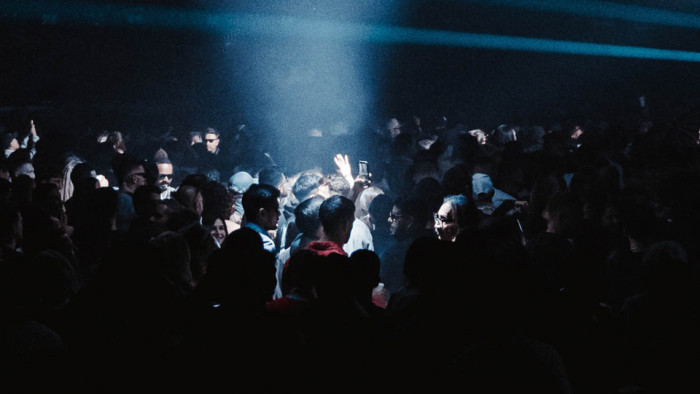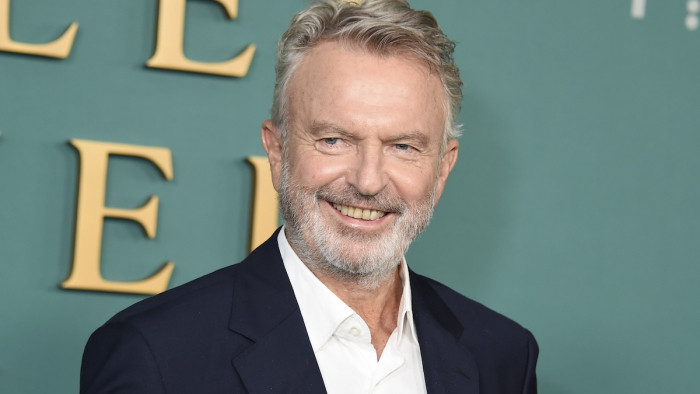What Australian biker gangs, Kalahari tribesmen and Greek strongmen taught me about being a man in 2018
Documentary maker Simon Reeve discusses what he’s learned about masculinity from the planet’s most remote and radical male cultures


Simon Reeve knows how to deal with difficult men.
From stoned mercenaries in Mogadishu to ultranationalist Burmese monks via way of Aussie motorcycle gangs and incarcerated Honduran murderers, the 46-year-old adventurer, author and travel presenter’s 9-5 has dropped him into some of the most extreme corners of the globe. Often relying on his boyish intrigue and genuine nice-guy persona to chum up with ‘different’, sometimes deadly men and discover what makes them and their homes tick.
But Reeve hasn’t always known how to deal with the difficulties of being a man himself.
“I suffered a masculinity crisis as a teenager,” Simon Reeve tells us from his home in North London. “When I left school I was completely lost. I had no qualifications, I was living off income support, and had no idea of what I was going to do with my life. I had no meaning. At the lowest moment, I found myself on a bridge, ready to end it. But I’m lucky - in that moment, I chose life. Since then, I’ve always been interested in how other cultures deal with the concept of masculinity, and how boys are shepherded in manhood.”
Here, he talks us through the seven biggest lessons he’s learned about masculinity, whilst embedded with some of the globe’s most interesting men…
Australian Miners taught me about… opening up

It was during my first travels in Australia, 14 years ago, that I really sensed a change in traditional male culture. It was at BBQ on the edge of the Great Sandy Desert, with a bunch of super tough miners who, to an outsider, appeared only capable of grunting about footy and beer. Any preconceptions were smashed instantly because what these guys wanted to talk about, from the off, was the damage that working in the mines and living in the dongas - shipping containers turned into ‘homes’ - was doing to their wives and their relationships.
It was a lightning moment for me – given the opportunity - they were so open to getting these feelings and emotions off their chests. I don’t think men get enough chances to do that. But, if a culture of openness and an awakening is happening to Aussie miners at an outback BBQ, then surely this has to be a really different time to be a man elsewhere too?
Aboriginals taught me about… the importance of purpose

As somebody that was on the dole when I left school, and had a very difficult time, saw no purpose or meaning in life and has struggled to find it since, my time with Australian aboriginals showed me that purpose and meaning is the thing that we need more than almost anything else.
Some of the aboriginal communities I visited were the darkest places I’ve walked into anywhere on this planet. I witnessed men, and their communities, festering and rotting. They’d come to depend on welfare and the ‘sit-down money’ provided to them by oil companies as ‘rent’ for mining their land.
Society had collapsed, was corrupted, and had been destroyed by a lack of purpose. As a result, people lead short, stunted lives. But there were some successful ones. Ones where their leaders held the community together, and focussed on the glory of their culture. Men hunted, went into the bush, read the landscape. Celebrating their culture provided them a focus and purpose.
Society in the West is actively stripping this culture and purpose from us but I feel like you can still find your focus because it doesn’t matter what it is. It could be football, chasing a dream, faith. You need to find something that holds you together.
Biker gangs taught me about… brotherhood

The Finks Biker Gang are about the toughest-looking bunch of blokes I’ve ever encountered on this planet. They’re the epitome of masculinity in an almost ludicrous way – pumped up guys, covered in tattoos, who see themselves as the last rebels against the police and the authorities. But they’re not knuckleheads by any means. They were far sharper than I could have imagined, and much bigger characters.
What was absolutely fascinating, was just how intoxicating their sense of ‘togetherness’ was. For a start, they’re guys who are literally tattooing their faces in kinship. That’s the most dramatic visual bonding that you can imagine. But that lure of brotherhood - just being there for each other - was so strong. It was so instantly appealing that I, even as a poncey TV presenter, really wanted to join them.
It’s dangerous to glamourise it, but the gang came before everything else. Once you’re in the gang, that’s it for life. They won’t let you leave. You either embrace it, or they come to you. If your primary focus in life isn’t hanging out at the clubhouse with the guys they will want to know why. As a guy with a mixed group of friends scattered and dispersed everywhere, the seductiveness of a close-knit gang really stuck with me. We need that, whether it’s seeing your five-a-side team once a week, or meeting your friends for a pint. My mates meet every Thursday for a drink, and I’m so often not around to join them. I really miss that.
The Wichi taught me about… turning boys to men

The Wichi people, who I met in northern Argentina, are a struggling indigenous community in a part of the world that is being rapidly and dramatically deforested. Even though their way of life is changing really quickly, they still sit around the fire to talk through issues and problems together.
What I loved was how they involved the young men in the discourse too. I’m talking boys as young as 10, treated as equals. It was critical in treating and training the youngsters to be men. The very fact that the boys had been invited into the men’s world helped to make them feel a part of the community, and in turn they were open to questioning authority, standing up as part of the debate, and having things to say. They weren’t just treated as silly boys.
This is something we don’t do in our world. Here, adolescence seems to extend on into the 20s and 30s. Boys aren’t being given a rite of passage any more. Every culture, for thousands of years, has recognised that as boys become adolescents, they need to be treated differently. And never before, in my view, has our response been to give them the equivalent of social media and video games rather than a sense of identity, a weapon, a focus, and a chance to prove themselves.
The Saudi Arabians taught me about… the dangers of men without women

Of course, global culture as a whole is still dominated by men, but nowhere is this more true than in Saudi Arabia. Here, for young men, women have been almost entirely removed from the mix and as a result, men are going mad.
Men who don’t have the outlet of girls to focus their minds, or women to provide a social pressure to keep them in check, go completely bonkers in their cars. I saw some the most suicidal driving ever in Saudi Arabia. The likes of which not even a Hollywood stunt driver could do, I suspect.
When our vehicle was almost crashed into – I can still picture the driver’s face, the scream of pure joy and delight as he skidded by us - our police driver just looked at me and said: “Boys! They have to let steam of somehow!”
I also saw a lot of ‘road surfing’ too – guys standing outside the car, holding onto the frame as it travels 70mph, surfing on the road in just in their robes and sandals. I couldn’t believe what my eyes were seeing. This is why you see more smashed up supercars there than anywhere else in the world. Men are killing themselves. And this is a consequence, I think, of a society that’s completely dominated by masculinity. Men go bonkers, quite frankly.
The San of the Kalahari taught me about… the role of self

The San of the Kalahari Desert are some of the oldest people on the planet. They’re one of the last true hunter-gatherers, but very few of them live that life now. When we went looking for some of the last San settlements in the Kalahari, I was fascinated to find that San men were returning to the desert from their resettlement camps with a need to rediscover their sense of self, their people and their culture.
Despite running water and a better quality of life, they felt they were rotting in these new ‘modern’ homes. They were taking off their western clothes and walking into the desert to find their culture again, and to reawaken their pride. It might sound ridiculous, but in the West, and in Britain as much as anywhere, we’re really losing a sense of what it means to be British, English, and male. This exodus proved to me that there’s a real danger in that.
If nobody tells us who and what we are, then we lose our identity, culture, and sense of ourselves. And that troubles me. Maintaining your culture in this world of smartphones is a hard thing to do for anyone, not least indigenous people.
Cretan strongboys taught me about… the need for camping

In my view, the Greeks are the most passionate, the most fiery, and occasionally the most stubborn of all the Mediterranean cultures. I love them. I love the country. A part of me wishes I’d been born Greek. But the Cretans turn that dial up to eleven.
It’s a very masculine culture, and there’s a strut and a confidence about the men that you find in very few places. It’s has been bred into them over thousands of years, a result of the endless invasion and conflict that they’ve endured - Crete is one of the very few places in Europe where people fought back against the Germans, and they fought back bravely with pitchforks as well as old shotguns.
The most masculine men in all Crete are in the mountain village of Anogia. I stayed with a group of guys from the village, some of whom where soldiers, some were shepherds, some were teachers, but all of which taught me the absolute necessity and value of regularly staying somewhere remote, with your mates, to howl at the moon, cook something over a fire, and to be in a situation where the sharing of stories, feelings and emotions is possible. This isn’t seen as something that guys do as therapy. It’s rooted in their culture.
It’s a valuable lesson for us – these are the most masculine men of Europe, and they know the importance of men being able to feel free and emotional. Oh, and the importance of owning a dog. One of those guys held my arm and said to me: “Every man needs a gun and a dog.” It made such an impact on me that, after years of my wife trying to convince me, soon after I returned a big bloody Alsatian-Collie entered our world. All because of what that Cretan man told me around the campfire.
Step by step, the life in my journeys by Simon Reeve is out on 6th September (Hodder, £20). An Audience With Simon Reeve will be at theatres around the UK from 17 September – for ticket details www.simonreeve.co.uk
Latest


London has a new 2,800-capacity music venue


New Godzilla film casts Jurassic Park's Sam Neill
Related Reviews and Shortlists







